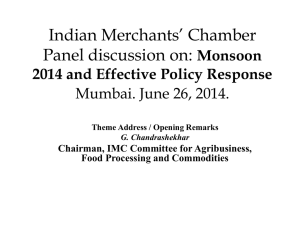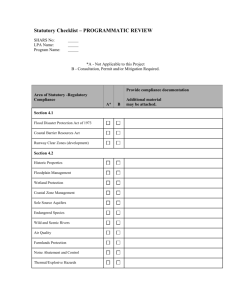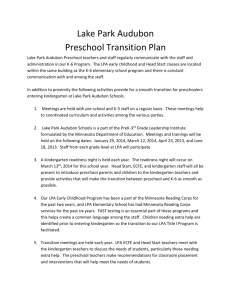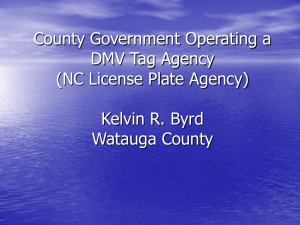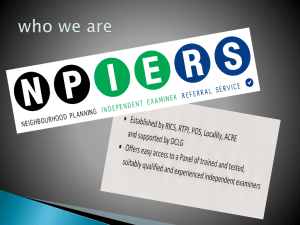Registering your LPA It is recommended for you to register your LPA
advertisement
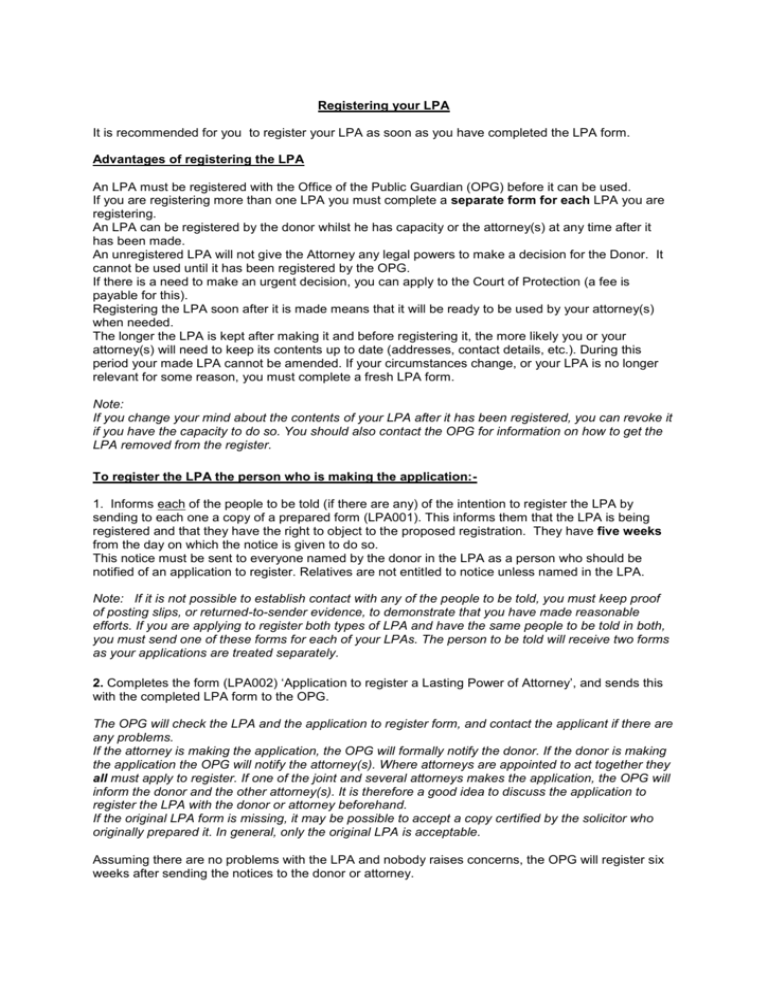
Registering your LPA It is recommended for you to register your LPA as soon as you have completed the LPA form. Advantages of registering the LPA An LPA must be registered with the Office of the Public Guardian (OPG) before it can be used. If you are registering more than one LPA you must complete a separate form for each LPA you are registering. An LPA can be registered by the donor whilst he has capacity or the attorney(s) at any time after it has been made. An unregistered LPA will not give the Attorney any legal powers to make a decision for the Donor. It cannot be used until it has been registered by the OPG. If there is a need to make an urgent decision, you can apply to the Court of Protection (a fee is payable for this). Registering the LPA soon after it is made means that it will be ready to be used by your attorney(s) when needed. The longer the LPA is kept after making it and before registering it, the more likely you or your attorney(s) will need to keep its contents up to date (addresses, contact details, etc.). During this period your made LPA cannot be amended. If your circumstances change, or your LPA is no longer relevant for some reason, you must complete a fresh LPA form. Note: If you change your mind about the contents of your LPA after it has been registered, you can revoke it if you have the capacity to do so. You should also contact the OPG for information on how to get the LPA removed from the register. To register the LPA the person who is making the application:1. Informs each of the people to be told (if there are any) of the intention to register the LPA by sending to each one a copy of a prepared form (LPA001). This informs them that the LPA is being registered and that they have the right to object to the proposed registration. They have five weeks from the day on which the notice is given to do so. This notice must be sent to everyone named by the donor in the LPA as a person who should be notified of an application to register. Relatives are not entitled to notice unless named in the LPA. Note: If it is not possible to establish contact with any of the people to be told, you must keep proof of posting slips, or returned-to-sender evidence, to demonstrate that you have made reasonable efforts. If you are applying to register both types of LPA and have the same people to be told in both, you must send one of these forms for each of your LPAs. The person to be told will receive two forms as your applications are treated separately. 2. Completes the form (LPA002) ‘Application to register a Lasting Power of Attorney’, and sends this with the completed LPA form to the OPG. The OPG will check the LPA and the application to register form, and contact the applicant if there are any problems. If the attorney is making the application, the OPG will formally notify the donor. If the donor is making the application the OPG will notify the attorney(s). Where attorneys are appointed to act together they all must apply to register. If one of the joint and several attorneys makes the application, the OPG will inform the donor and the other attorney(s). It is therefore a good idea to discuss the application to register the LPA with the donor or attorney beforehand. If the original LPA form is missing, it may be possible to accept a copy certified by the solicitor who originally prepared it. In general, only the original LPA is acceptable. Assuming there are no problems with the LPA and nobody raises concerns, the OPG will register six weeks after sending the notices to the donor or attorney. How to object to the registering of an LPA The OPG can be requested to stop the LPA from being registered if one of the factual grounds at (A) below has occurred. The person completes Form LPA7 and must provide evidence to accompany it. (A) Factual grounds – you can ask the Office of the Public Guardian to stop registration if: • The Donor is bankrupt or interim bankrupt (for property and affairs LPAs only) • The Attorney is bankrupt or interim bankrupt (for property and affairs LPAs only) • The Attorney is a trust corporation and is wound up or dissolved (for property and affairs LPAs only) • The Donor is dead • The Attorney is dead • That there has been dissolution or annulment of a marriage or civil partnership between the Donor and Attorney (except if the LPA provided that such an event should not affect the instrument) • The Attorney(s) lack the capacity to be an attorney under the LPA • The Attorney(s) have disclaimed their appointment A person has the right to object to the Court of Protection (CoP) about the registration of the LPA, but only on the grounds mentioned at (B) below. To do this a person must contact the CoP and complete the form they will send. Using that form, the person must set out the reasons for objecting. The CoP must receive the objection within five weeks from the date this notice was given. The OPG must also be notified. Note: If you are objecting to the appointment of a specific attorney, it will not prevent registration if other attorneys or a substitute attorney have been appointed. (B) Prescribed grounds – you can only object to the CoP against registration of the LPA on the following grounds: • That the power purported to be created by the LPA is not valid as a LPA. e.g. the person objecting does not believe the donor had capacity to make an LPA. • That the power created by the LPA no longer exists e.g. the donor revoked it at a time when he/ she had capacity to do so. • That fraud or undue pressure was used to induce the donor to make the power. • The attorney proposes to behave in a way that would contravene his authority or would not be in the donor’s best interests. The Court will only consider objections made if they are made on the above grounds.

